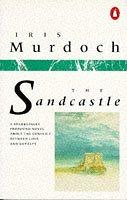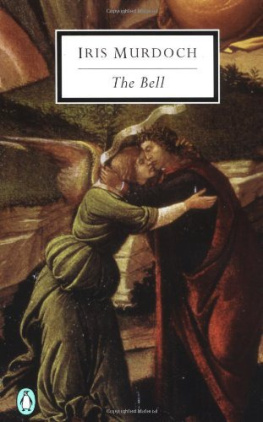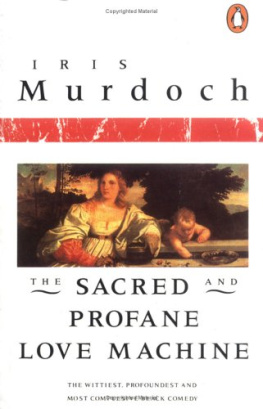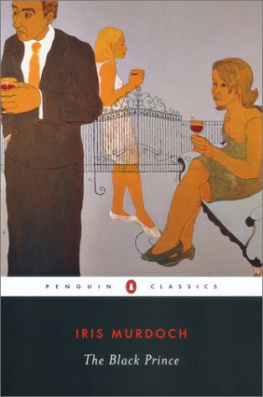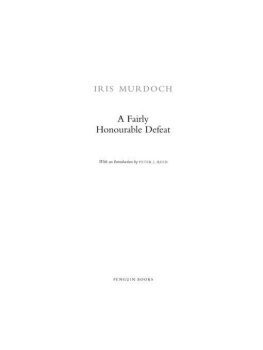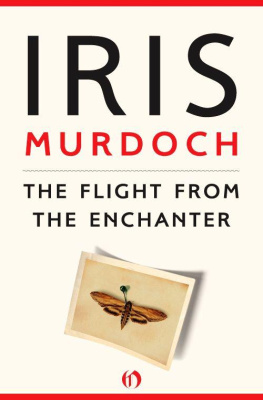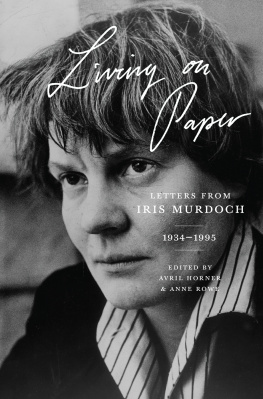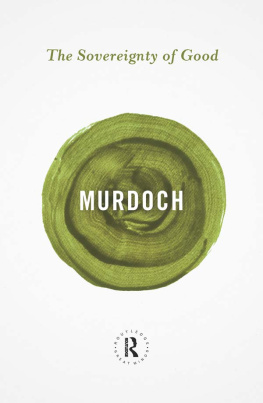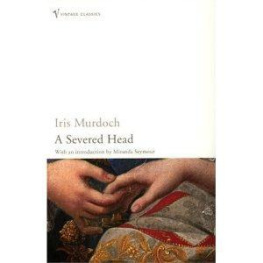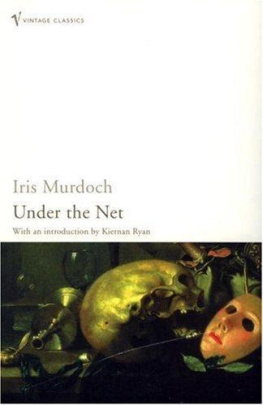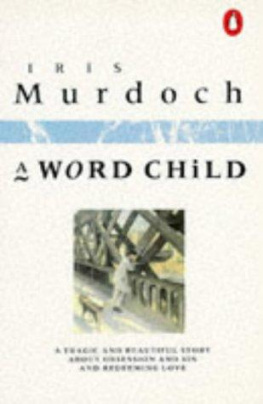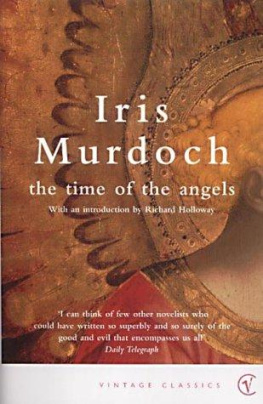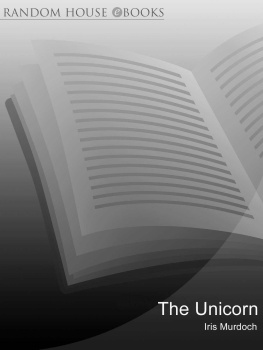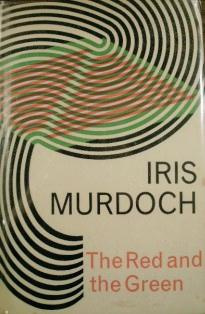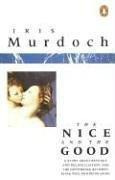Iris Murdoch - The Sandcastle
Here you can read online Iris Murdoch - The Sandcastle full text of the book (entire story) in english for free. Download pdf and epub, get meaning, cover and reviews about this ebook. year: 1995, publisher: Penguin, genre: Art / Prose. Description of the work, (preface) as well as reviews are available. Best literature library LitArk.com created for fans of good reading and offers a wide selection of genres:
Romance novel
Science fiction
Adventure
Detective
Science
History
Home and family
Prose
Art
Politics
Computer
Non-fiction
Religion
Business
Children
Humor
Choose a favorite category and find really read worthwhile books. Enjoy immersion in the world of imagination, feel the emotions of the characters or learn something new for yourself, make an fascinating discovery.
- Book:The Sandcastle
- Author:
- Publisher:Penguin
- Genre:
- Year:1995
- Rating:3 / 5
- Favourites:Add to favourites
- Your mark:
- 60
- 1
- 2
- 3
- 4
- 5
The Sandcastle: summary, description and annotation
We offer to read an annotation, description, summary or preface (depends on what the author of the book "The Sandcastle" wrote himself). If you haven't found the necessary information about the book — write in the comments, we will try to find it.
The Sandcastle — read online for free the complete book (whole text) full work
Below is the text of the book, divided by pages. System saving the place of the last page read, allows you to conveniently read the book "The Sandcastle" online for free, without having to search again every time where you left off. Put a bookmark, and you can go to the page where you finished reading at any time.
Font size:
Interval:
Bookmark:

1957

PENGUIN BOOKS
IrisMurdoch was born in Dublin in 1919 of Anglo-Irish parents. She went toBadminton School, Bristol, and read classics at Somerville College, Oxford.During the war she was an Assistant Principal at the Treasury, and then workedwith UNRRA in London, Belgium and Austria. She held a studentship in philosophyat Newnham College, Cambridge, and then in 1948 became a Fellow of St AnnesCollege, Oxford, where she lived with her husband, the teacher and critic JohnBayley. Awarded the CBE in 1976, Iris Murdoch was made a DBE in the 1987 NewYears Honours List. In the 1997 PEN Awards she received the Gold Pen forDistinguished Service to Literature.
Iris Murdoch wrote twenty-six novels, including Under the Net, her writingdbut of 1954, the Booker Prize-winning The Sea, the Sea (1978) and,more recently, The Green Knight (1993) and Jacksons Dilemma(1995). She received a number of other literary awards, among them the JamesTait Black Memorial Prize for The Black Prince (1973) and the WhitbreadPrize for The Sacred and Profane Love Machine (1974). Her works ofphilosophy include Sartre: Romantic Rationalist, Metaphysics as a Guide toMorals (1992) and Existentialists and Mystics (1997). She also wroteseveral plays, including The Italian Girl (with James Saunders) and TheBlack Prince, an adaptation of her novel. Her volume of poetry, A Yearof Birds, which appeared in 1978, was set to music by Malcolm Williamson.
Iris Murdoch died in February 1999. Among the many who paid tribute to her as aphilosopher, novelist and private individual was Peter Conradi, who in hisobituary in the Guardian wrote Iris Murdoch was one of the best andmost influential writers of the twentieth century. Above all, she kept thetraditional novel alive, and in so doing changed what it is capable of Sheconnected goodness, against the temper of the times, not with the quest for anauthentic identity so much as with the happiness that can come about when thatquest is relaxed. We are fortunate to have shared our appalling century withher.

To JOHN BAYLEY

ChapterOne
FIVEhundred guineas! said Mors wife. Well I never!
Its the market price, said Mor.
You could articulate more distinctly, said Nan, if you took that ratherdamp-looking cigarette out of your mouth.
I said its the market price! said Mor. He threw his cigarette away.
Bledyard would have done it for nothing, said Nan.
Bledyard is mad, said Mor, and thinks portrait painting is wicked.
If you ask me, its you and the school Governors that are mad, said Nan. Youmust have money to burn. First all that flood-lighting, and then this.Flood-lighting! As if it wasnt bad enough to have to see the school during theday!
Shall we wait lunch for Felicity? asked Mor.
No, of course not, said Nan. She always sulks when she comes home. Shewouldnt want to eat anyway. Felicity was their daughter. She was expectedhome that day from boarding school, where an outbreak of measles had broughtthe term to an early conclusion.
They seated themselves at the table at opposite ends. The dining-room was tiny.The furniture was large and glossy. The casement windows were open as wide asthey could go upon the hot dry afternoon. They revealed a short front gardenand a hedge of golden privet curling limply in the fierce heat. Beyond thegarden lay the road where the neat semi-detached houses faced each other likemirror images. The housing estate was a recent one, modem in design and verysolidly built. Above the red-tiled roofs, and over the drooping foliage of thetrees there rose high into the soft midsummer haze the neo-Gothic tower of StBrides school where Mor was a housemaster. It was a cold lunch.
Water? said Nan. She poured it from a blue-and-white porcelain jug. Mortilted his chair to select his favourite from the row of sauce bottles on thesideboard. One advantage of the dining-room was that everything was withinreach.
Is Donald coming in this evening to see Felicity? asked Nan. Donald was theirson, who was now in the Sixth Form at St Brides.
Hes taking junior prep, said Mor.
Hes taking junior prep! said Nan, imitating. You could have got him offtaking junior prep! I never met such a pair of social cowards. You never wantto do anything that might draw attention to you. You havent taken a vow ofobedience to St Brides.
You know Don hates privileges, said Mor briefly. This was one of the pointsfrom which arguments began. He jabbed unenthusiastically at his meat. I wishFelicity would come.
Ive got a bone to pick with Don, said Nan.
Dont nag him about the climbing, said Mor. Donald wanted to go on a climbingholiday. His parents were opposed to this.
Dont use that word at me! said Nan. Someones got to take some responsibilityfor what the children do.
Well, leave it till after his exam, said Mor. Hes worried enough. Donaldwas shortly to sit for a Cambridge College entrance examination in chemistry.
If we leave it, said Nan, we 11 find its been fixed. Don told me it was alloff. But Mrs Prewett said yesterday they were still discussing it. Yourchildren seem to make it a general rule to lie to their parents for all yourtalk about truth.
Although he now held no religious views, Mor had been brought up as aMethodist. He believed profoundly in complete truthfulness as the basis andcondition of all virtue. It grieved him to find that his children were almosttotally indifferent to this requirement. He pushed his plate aside.
Arent you going to eat that? said Nan. Do you mind if I do? She reachedacross a predatory fork and took the meat from Mors plate.
Its too hot to eat, said Mor. He looked out of the window. The tower of theschool was idling in the heat, swaying a little in the cracked air. From thearterial road near by came the dull murmur, never stilled by day, of the streamof traffic now half-way between London and the coast. In the heat of theafternoon it sounded like insects buzzing in a wood. Time was longer, longer,longer in the summer.
You remember how poor Liffey used to hate this hot weather, said Mor.
Liffey had been their dog, a golden retriever, who was killed two years ago onthe main road. This animal had formed the bond between Mor and Nan which theirchildren had been unable to form. Half unconsciously, whenever Mor wanted toplacate his wife he said something about Liffey.
Nans face at once grew gentler. Poor thing! she said. She used to staggerabout the lawn following a little piece of shadow. And her long tongue hangingout.
I wonder how much longer the heat wave will last, said Mor.
In other countries, said Nan, they just have the summertime. We have to talkabout heat waves. Its dreary.
Mor was silent while Nan finished her plate. He began to have a soporificfeeling of conjugal boredom. He stretched and yawned and fell to examining astain upon the tablecloth. You havent forgotten were dining with Demoytetonight?
Demoyte was the former headmaster of St Brides, now retired, but still living inhis large house near to the school. The Mors had continued their custom ofdining with him regularly. The sum of five hundred guineas, which had so muchscandalized Nan, was to be paid for a portrait of him which the schoolGovernors had recently commissioned.
Font size:
Interval:
Bookmark:
Similar books «The Sandcastle»
Look at similar books to The Sandcastle. We have selected literature similar in name and meaning in the hope of providing readers with more options to find new, interesting, not yet read works.
Discussion, reviews of the book The Sandcastle and just readers' own opinions. Leave your comments, write what you think about the work, its meaning or the main characters. Specify what exactly you liked and what you didn't like, and why you think so.

